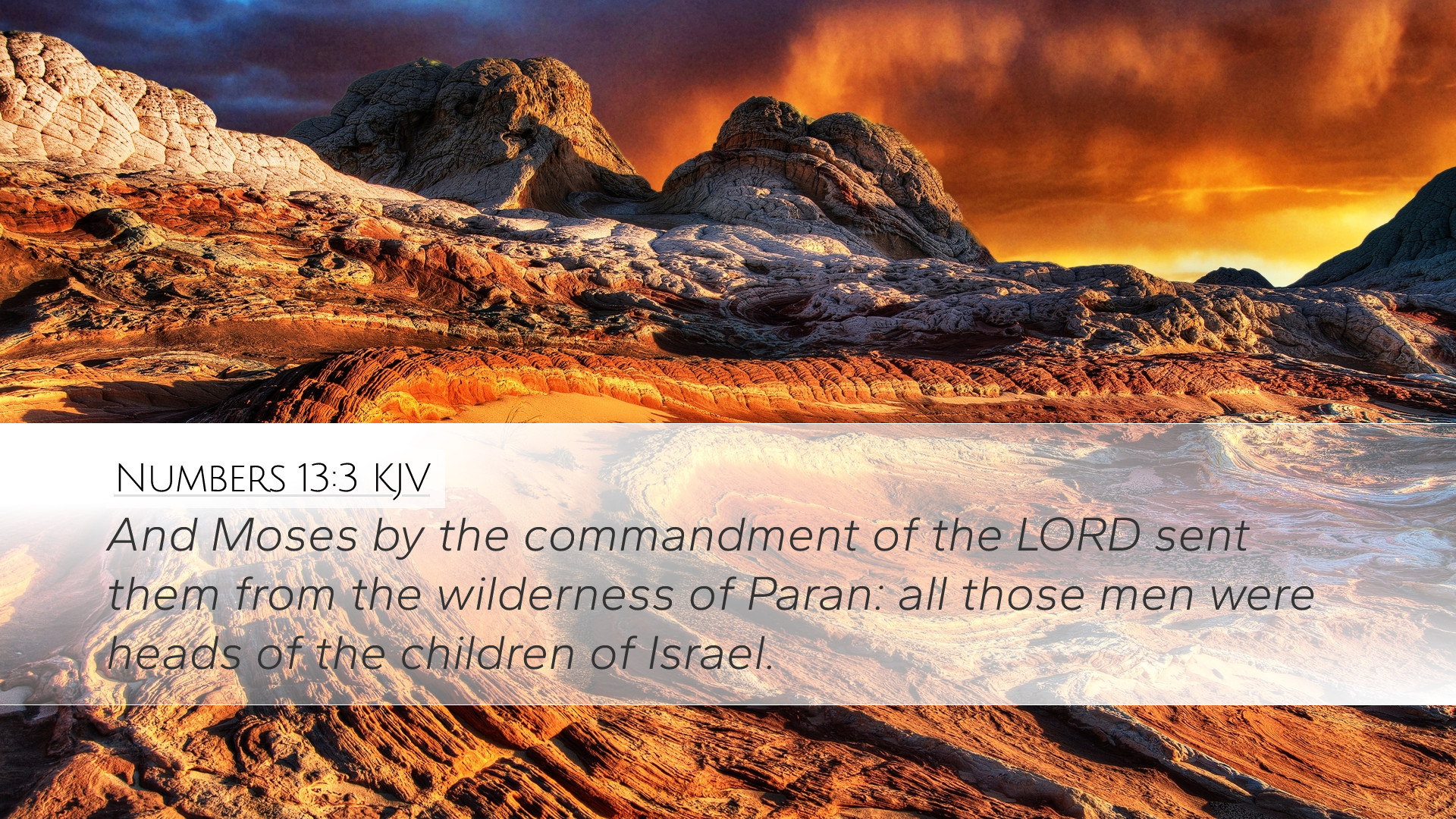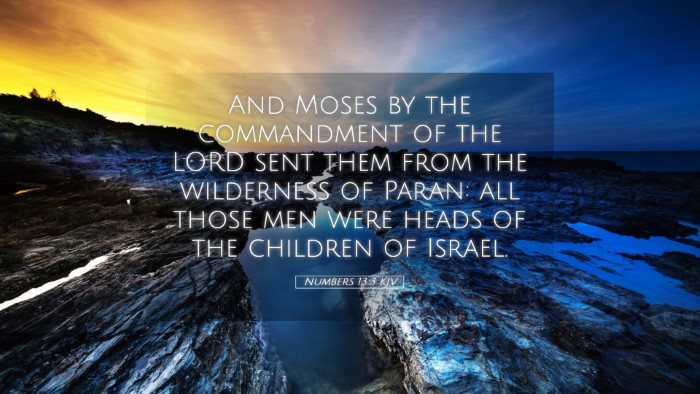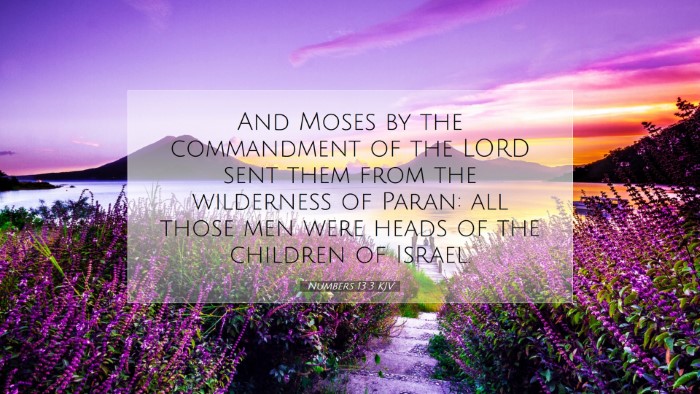Commentary on Numbers 13:3
Verse: Numbers 13:3 – "And Moses by the commandment of the LORD sent them from the wilderness of Paran: all those men were heads of the children of Israel."
Introduction
This pivotal verse lays the groundwork for the exploration of Canaan, as commanded by God. The act of sending spies into the Promised Land symbolizes both faith and doubt, illustrating the tension between divine promise and human fear. The insights from classic biblical commentaries shed light on the significance of this event and its implications for Israel's future.
Moses’ Command and Divine Authority
Matthew Henry notes that Moses acts under the explicit command of the Lord. This command not only affirms Moses as a leader but also signifies the necessity of divine guidance in exploring new territories. It establishes that the quest for understanding and possessing the land involves reliance on God's direction.
Henry emphasizes that the leadership of these men, identified as princes or heads of the tribes, reflects the serious nature of the mission. Their designation indicates that the task at hand was not merely an exploratory survey but a significant undertaking that would greatly influence Israel's destiny.
Choice of Spies
Albert Barnes elaborates on the selection of spies, remarking that their roles as heads of tribes not only conferred authority but also responsibility. Each leader represented their people, which meant that their report would have implications beyond their own tribes. Furthermore, Barnes highlights that by sending a representative group, Moses aimed to unite public opinion about entering the Promised Land.
Contextual Background
To fully appreciate this mission, Adam Clarke provides context about Israel's journey up to this point. Clarke notes that after leaving Egypt, the Israelites had gone through various trials and had witnessed numerous miracles. Nonetheless, despite these experiences, they were still at risk of skepticism regarding God’s promises. Clarke reminds us that the Israelites were not without precedent concerning faith; rather, their journey required a continual exercise of trust in God’s provision.
Theologians’ Perspectives on Leadership and Responsibility
Commentators converge on the idea that the selection of leaders carries theological implications about faith and communal identity. Henry asserts that the leaders' experience and credibility were essential in affirming God's promise to the community. By choosing men who were respected among the people, Moses sought to cultivate a spirit of cooperation and unity.
Barnes adds that leadership in this context involves a profound responsibility. The leaders not only serve their tribes but also carry the weight of their decisions upon the community as a whole. This notion resonates with contemporary understandings of pastoral leadership, emphasizing the necessity of humility and seeking God’s will in decision-making processes.
Application for Today’s Church
From a modern theological perspective, this verse challenges pastors and church leaders to reflect on how they approach new missions and challenges within their communities. How do they discern God's will? Are they involving the people in communal prayer and seeking the counsel of those deemed wise and capable? Clarke’s insights suggest that even in contemporary settings, there exists a need for communal discernment and collective faith.
- Divine Guidance: Leaders today must rely on prayer and scripture to guide their decision-making processes.
- Community Representation: Engaging diverse voices in church leadership mirrors the selection of the spies, indicating a collective journey.
- Faith in Action: This narrative encourages modern believers to act on faith despite uncertainty, reflecting the journey of the Israelites.
Conclusion
Numbers 13:3 serves as a critical juncture in Israel's narrative, defining the relationship between divine command and human action. The interplay of leadership, faith, and communal responsibility illuminated in this passage offers timeless lessons for modern readers. The insights drawn from the commentaries of Henry, Barnes, and Clarke enhance our understanding of the biblical text, urging a reflective and prayerful approach to both individual and collective endeavors in faith.


